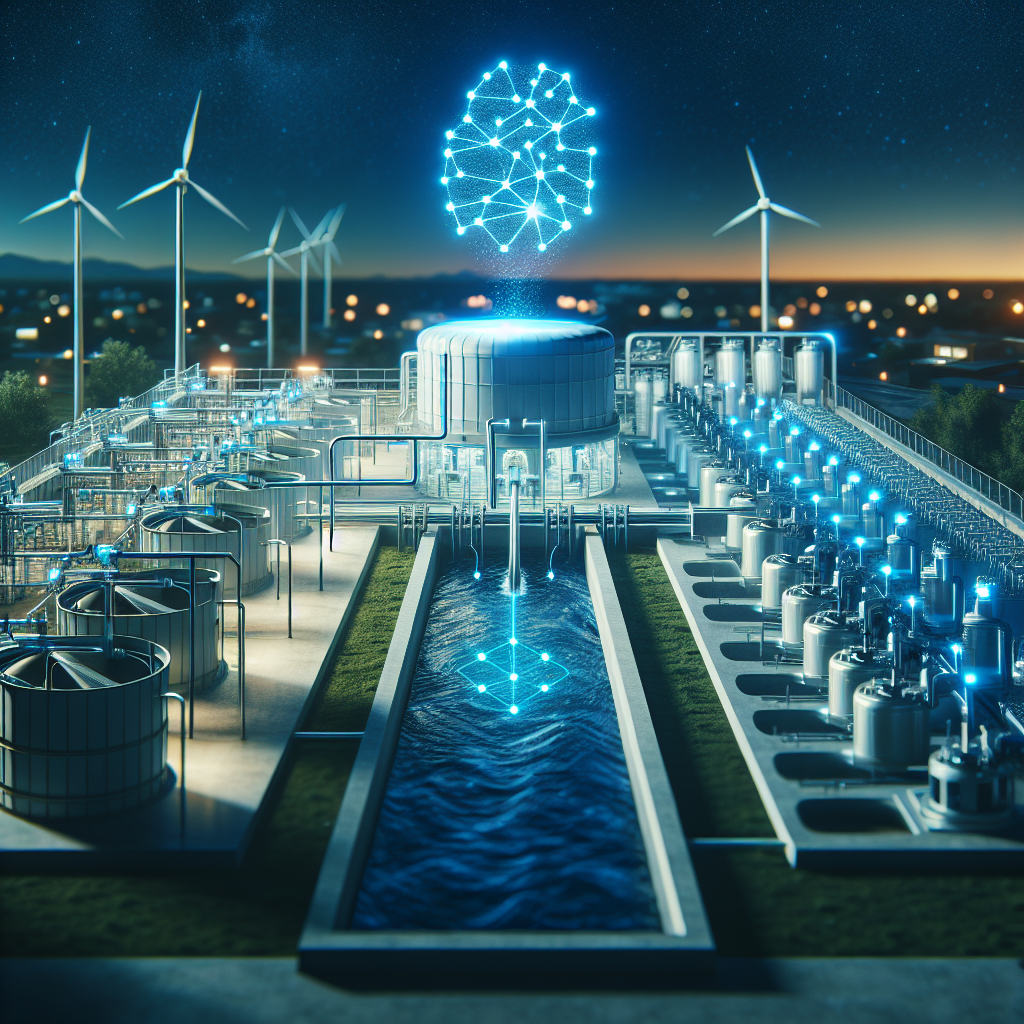Leveraging AI for Sustainable Water Management
Water is a fundamental resource essential for human life, agriculture, and industry. However, with increasing population growth, urbanization, and climate change, the demand for water is rapidly outpacing supply in many parts of the world. According to the United Nations, by 2025, two-thirds of the world’s population could be facing water shortages. To address this critical issue, sustainable water management practices are needed to ensure the availability of clean water for future generations.
One innovative solution that is gaining traction in the field of water management is the use of artificial intelligence (AI) technologies. AI has the potential to revolutionize the way we monitor, analyze, and manage water resources, leading to more efficient and sustainable water management practices. In this article, we will explore how AI can be leveraged for sustainable water management and its potential benefits.
AI in Water Management
AI refers to the simulation of human intelligence processes by machines, particularly computer systems. In the context of water management, AI technologies can be used to collect, analyze, and interpret data to optimize water usage, detect leaks, predict water quality, and improve decision-making processes. Here are some ways in which AI can be applied in water management:
1. Water Quality Monitoring: AI can analyze data from sensors to detect contamination in water sources and predict changes in water quality. By using AI algorithms, water managers can identify potential issues early on and take corrective actions to prevent water pollution.
2. Leak Detection: AI can analyze data from smart meters and sensors to detect leaks in water distribution systems. By identifying leaks early, water utilities can reduce water losses and improve the efficiency of their operations.
3. Demand Forecasting: AI algorithms can analyze historical data on water usage patterns to forecast future water demand. By accurately predicting water demand, water utilities can optimize their water distribution systems and ensure reliable water supply to customers.
4. Flood Prediction: AI can analyze data from weather forecasts, river levels, and soil moisture to predict floods and alert authorities in advance. By using AI for flood prediction, communities can take proactive measures to mitigate the impact of flooding and protect lives and property.
5. Irrigation Optimization: AI can analyze data on soil moisture, weather conditions, and crop types to optimize irrigation schedules and reduce water usage in agriculture. By using AI for irrigation optimization, farmers can improve crop yields while conserving water resources.
Benefits of AI in Water Management
The use of AI technologies in water management offers several benefits that can help address the challenges of water scarcity and pollution. Some of the key benefits of leveraging AI for sustainable water management include:
1. Improved Efficiency: AI algorithms can process large amounts of data quickly and accurately, enabling water managers to make informed decisions in real-time. By optimizing water usage and distribution, AI can help water utilities reduce water losses and improve the efficiency of their operations.
2. Cost Savings: By detecting leaks early, predicting water demand, and optimizing irrigation schedules, AI can help water utilities and farmers save costs on water treatment, distribution, and usage. In the long run, the adoption of AI technologies in water management can lead to significant cost savings.
3. Enhanced Sustainability: AI can help water managers monitor and protect water resources more effectively, leading to sustainable water management practices. By improving water quality, reducing water waste, and optimizing water usage, AI can contribute to the long-term sustainability of water sources.
4. Early Warning Systems: AI can be used to develop early warning systems for floods, droughts, and water contamination events. By predicting and alerting authorities to potential water-related disasters, AI can help communities prepare and respond effectively to emergencies.
5. Data-Driven Decision Making: AI technologies can provide water managers with valuable insights and recommendations based on data analysis. By using AI for decision-making processes, water managers can make more informed and strategic decisions to optimize water management practices.
FAQs
Q: How can AI help in water quality monitoring?
A: AI can analyze data from sensors to detect contamination in water sources and predict changes in water quality. By using AI algorithms, water managers can identify potential issues early on and take corrective actions to prevent water pollution.
Q: What are the benefits of AI in water management?
A: The use of AI technologies in water management offers several benefits, including improved efficiency, cost savings, enhanced sustainability, early warning systems, and data-driven decision-making.
Q: How can AI be used for flood prediction?
A: AI can analyze data from weather forecasts, river levels, and soil moisture to predict floods and alert authorities in advance. By using AI for flood prediction, communities can take proactive measures to mitigate the impact of flooding and protect lives and property.
Q: How can AI optimize irrigation practices?
A: AI can analyze data on soil moisture, weather conditions, and crop types to optimize irrigation schedules and reduce water usage in agriculture. By using AI for irrigation optimization, farmers can improve crop yields while conserving water resources.
In conclusion, AI technologies have the potential to revolutionize sustainable water management practices by improving efficiency, reducing costs, enhancing sustainability, and enabling data-driven decision-making. By leveraging AI for water management, we can ensure the availability of clean water for future generations and address the challenges of water scarcity and pollution. It is essential for water utilities, policymakers, and stakeholders to embrace AI technologies and integrate them into their water management strategies to build a more resilient and sustainable water future.

